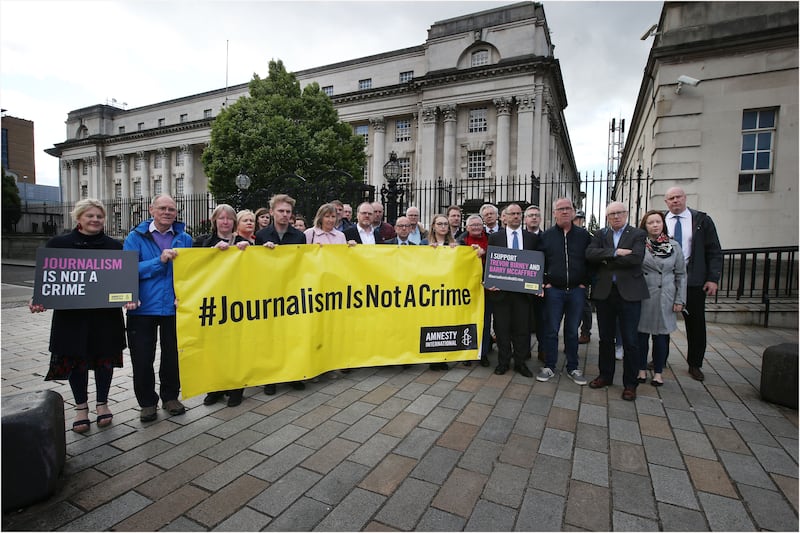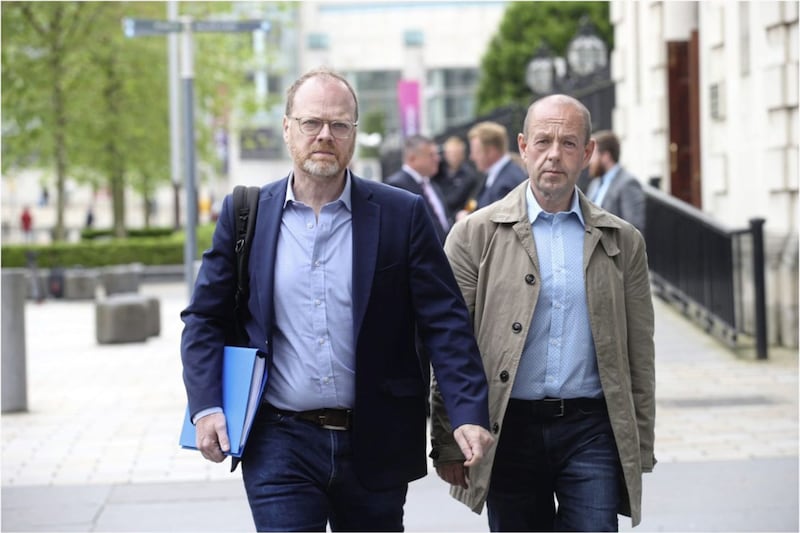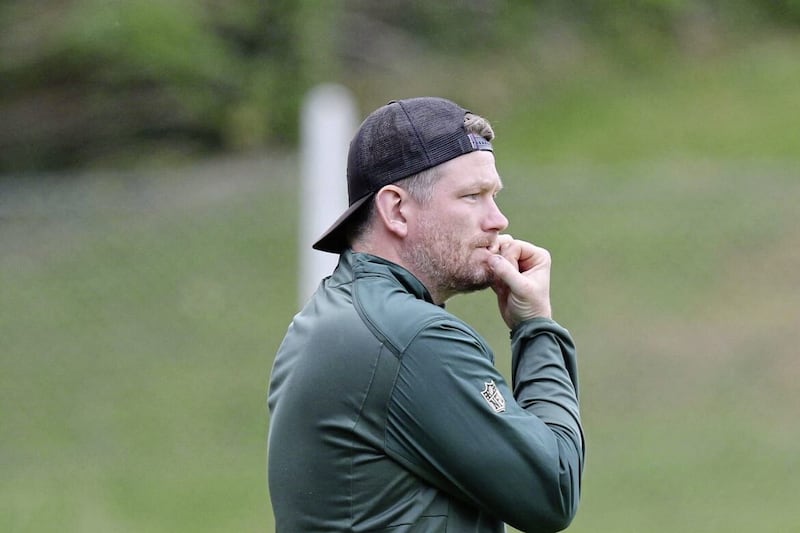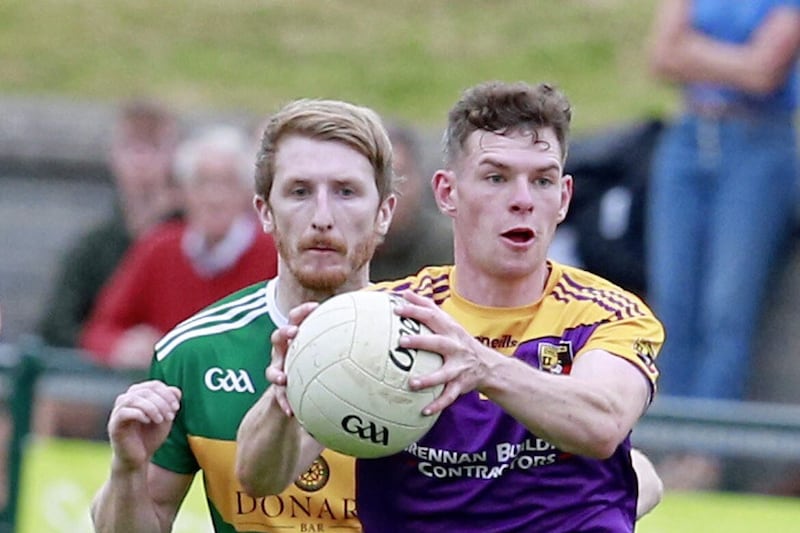The case of two journalists arrested over confidential material aired in a documentary should be highlighted around the world, David Davis has said.
The Conservative MP joined award-winning film makers Trevor Birney and Barry McCaffrey at Belfast High Court this morning to support their legal challenge against the police.
The pair were arrested last year over the alleged theft of a police watchdog document that appeared in their film No Stone Unturned on the murders of six men in Loughinisland, Co Down, in 1994.
They remain under live police investigation and are on bail.
A barrister told the High Court this morning that a police state-style arrest operation was launched against the two journalists after confidential material was aired in the documentary.
A vast amount of unrelated research, including millions of pages of documents, was taken when officers raided offices and the homes of the film makers.
Opening a legal case in Belfast this morning, Barry Macdonald QC said: "This was the kind of operation more associated with a police state than with a liberal democracy."
He said investigative journalists and their sources were supposed to be protected from this kind of intrusion.
He added: "This operation sets off alarm bells and flashing blue lights amongst media organisations.
"It set off alarm bells because of the grave implications for freedom of the press."
The 2017 film broke new ground by naming the suspects it said were involved in the UVF killings of six Catholic men who were gathered in a village pub watching the Republic play a World Cup football match on TV.
The men are taking a judicial review against the execution of the police search warrant.
Journalistic documents, computers, notebooks, files and digital material seized by police when they raided their film production company - Fine Point - were bagged and sealed after lawyers secured an interim injunction preventing detectives examining them pending the hearing of the legal challenge.
Outside court, Mr Davis explained why he travelled to Belfast to attend the case.
"Press freedom is the most fundamental freedom in modern society because it protects all the other freedoms," he said.

"Protecting press freedom is not just about protecting journalists, it is about protecting their whistleblowers and their witnesses, it is about protecting the ability to expose wrongdoing and expose failure and that is what these journalists are doing and they don't deserve to go through what they are going through now.
"Their cause is so important it should be known throughout the whole of the UK and the rest of the world."
Police are investigating how information contained in a Police Ombudsman for Northern Ireland document appeared in No Stone Unturned.
PSNI chief constable George Hamilton, citing a potential conflict of interest, asked Durham Constabulary to take on the probe in the wake of the film's release.
No one has ever been convicted of the Loughinisland murders.
In a 2016 report, Ombudsman Dr Michael Maguire concluded the security forces colluded with the UVF killers.
Mr Birney and Mr McCaffrey have insisted the document was leaked anonymously and have criticised the police characterisation of it as a "theft".
They have questioned why investigative resources are being diverted to their film when the Loughinisland killers have not been caught.
Opening the Fine Point Films case on Tuesday morning, Barry Macdonald QC said police seized millions of documents.
He claimed there was no risk to suspects named in the documentary since their names had been in the public domain for years.
He said a letter was sent to the suspects by the documentary makers offering them the opportunity to respond, but none was forthcoming.
Officers appeared to search every desk in the journalists' office and take material unrelated to Loughinisland, including one surrounding alleged clerical child sex abuse, the barrister told the Court of Appeal in Belfast.
"This was the kind of operation more associated with a police state than with a liberal democracy," he said.
He said investigative journalists and their sources were supposed to be protected from this kind of intrusion.
"This operation sets off alarm bells and flashing blue lights amongst media organisations.
"It set off alarm bells because of the grave implications for freedom of the press."








